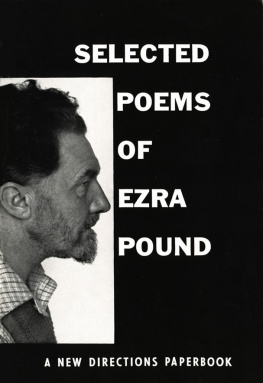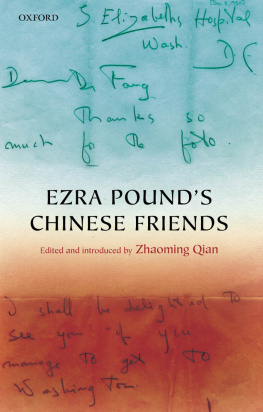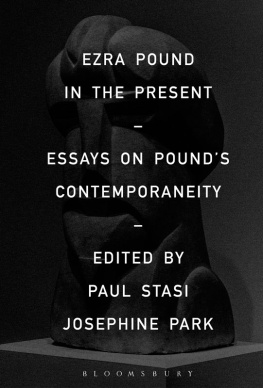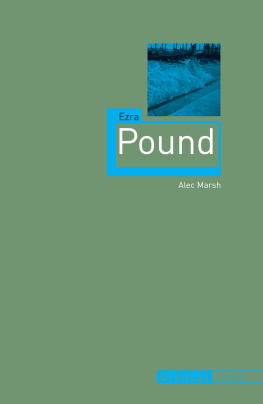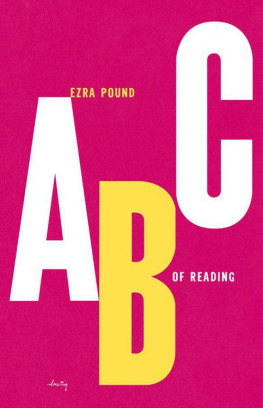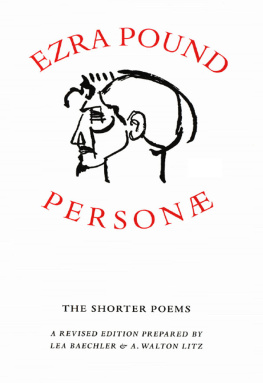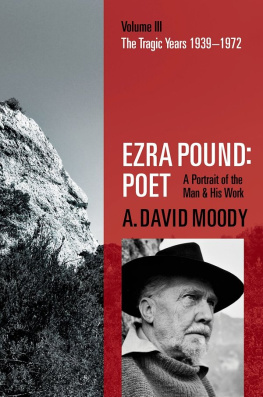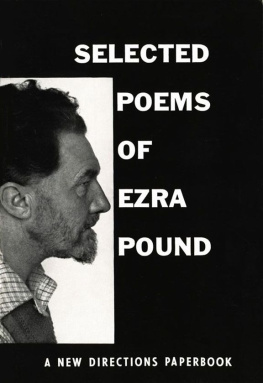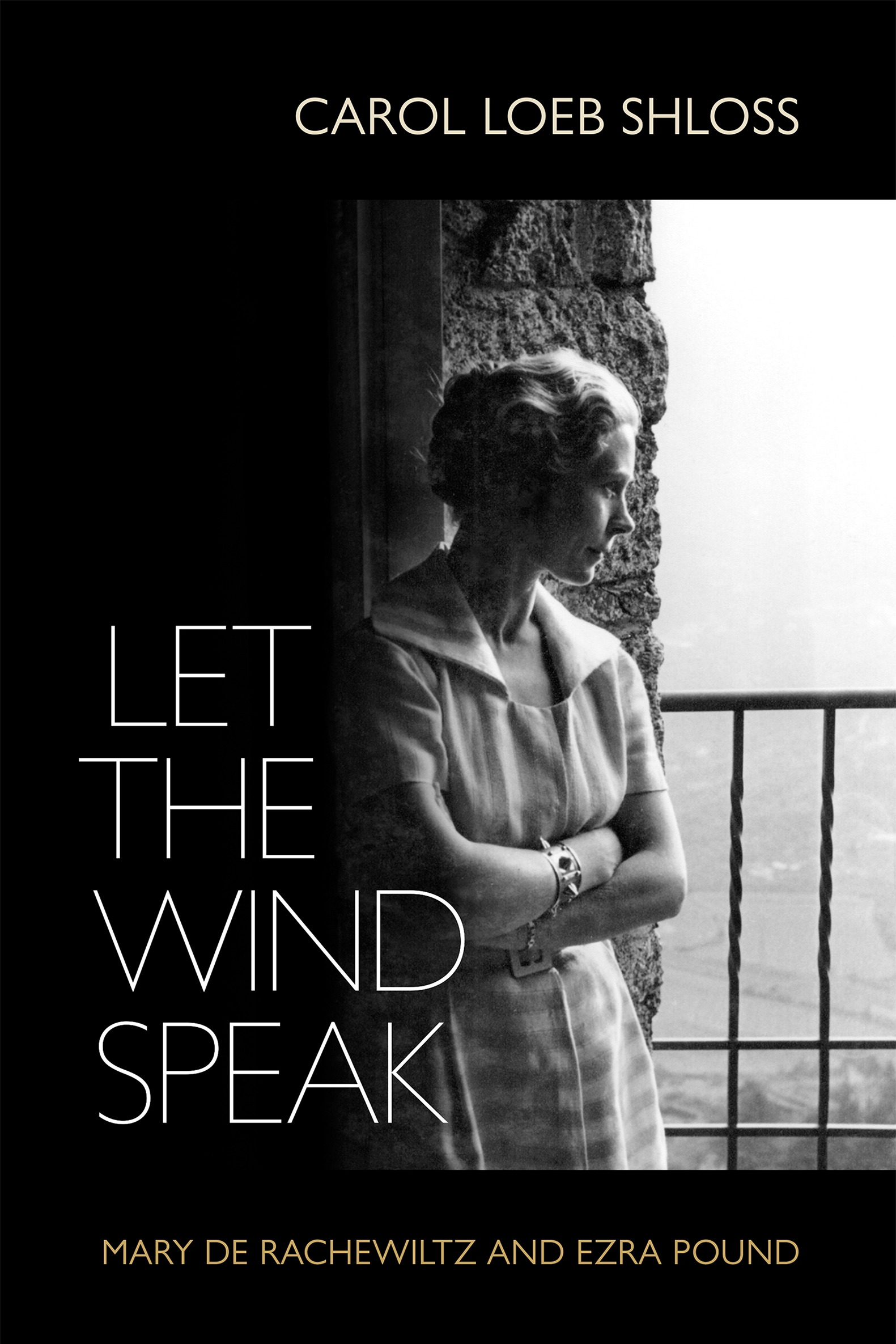Carol Shloss - Let the Wind Speak: Mary de Rachewiltz and Ezra Pound
Here you can read online Carol Shloss - Let the Wind Speak: Mary de Rachewiltz and Ezra Pound full text of the book (entire story) in english for free. Download pdf and epub, get meaning, cover and reviews about this ebook. City: Philadelphia, year: 2023, publisher: University of Pennsylvania Press, genre: Non-fiction / History. Description of the work, (preface) as well as reviews are available. Best literature library LitArk.com created for fans of good reading and offers a wide selection of genres:
Romance novel
Science fiction
Adventure
Detective
Science
History
Home and family
Prose
Art
Politics
Computer
Non-fiction
Religion
Business
Children
Humor
Choose a favorite category and find really read worthwhile books. Enjoy immersion in the world of imagination, feel the emotions of the characters or learn something new for yourself, make an fascinating discovery.

- Book:Let the Wind Speak: Mary de Rachewiltz and Ezra Pound
- Author:
- Publisher:University of Pennsylvania Press
- Genre:
- Year:2023
- City:Philadelphia
- Rating:3 / 5
- Favourites:Add to favourites
- Your mark:
Let the Wind Speak: Mary de Rachewiltz and Ezra Pound: summary, description and annotation
We offer to read an annotation, description, summary or preface (depends on what the author of the book "Let the Wind Speak: Mary de Rachewiltz and Ezra Pound" wrote himself). If you haven't found the necessary information about the book — write in the comments, we will try to find it.
Carol Loeb Shloss creates a compelling portrait of a complex relationship of a daughter and her literary-giant father: Ezra Pound and Mary de Rachewiltz, Pounds child by his long-time mistress, the violinist Olga Rudge. Brought into the world in secret and hidden in the Italian Alps at birth, Mary was raised by German peasant farmers, had Italian identity papers, a German-speaking upbringing, Austrian loyalties common to the area and, perforce, a fascist education.
For years, de Rachewiltz had no idea that Pound and Rudge, the benefactors who would sporadically appear, were her father and mother. Gradually the truth of her parentage was revealed, and with it the knowledge that Dorothy Shakespear, and not Olga, was Pounds actual wife. Dorothy, in turn, kept her own secrets: while Pound signed the birth certificate of her son, Omar, and claimed legal paternity, he was not the boys biological father. Two lies, established at the birth of these children, created a dynamic antagonism that lasted for generations.
Pound maneuvered through it until he was arrested for treason after World War II and shipped back from Italy to the United States, where he was institutionalized rather than imprisoned. As an adult, de Rachewiltz took on the task of claiming a contested heritage and securing her fathers literary legacy in the face of a legal system that failed to recognize her legitimacy. Born on different continents, separated by nationality, related by natural birth, and torn apart by conflict between Italy and America, Mary and Ezra Pound found a way to live out their deep and abiding love for one another.
Let the Wind Speak is both a history of modern writers who were forced to negotiate allegiances to one another and to their adopted countries in a time of mortal conflict, and the story of Mary de Rachewiltzs navigation through issues of personal identity amid the shifting politics of western nations in peace and war. It is a masterful biography that asks us to consider cultures of secrecy, frayed allegiances, and the boundaries that define nations, families, and politics.
Carol Shloss: author's other books
Who wrote Let the Wind Speak: Mary de Rachewiltz and Ezra Pound? Find out the surname, the name of the author of the book and a list of all author's works by series.


